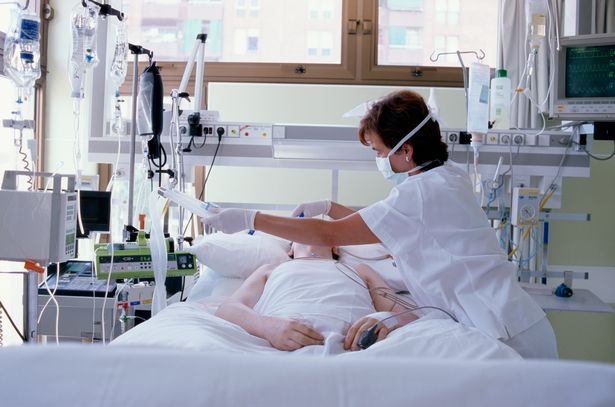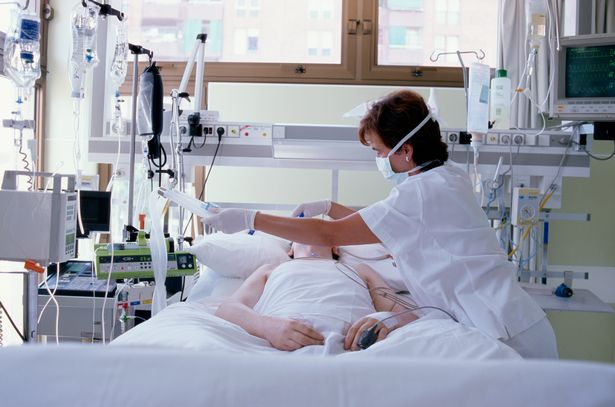
Post-intensive care syndrome is characterized by various physical, emotional, and mental problems that can persist even after the patient has left intensive care. Advances in medical healthcare have helped individuals survive critical diseases at an increased rate. Clinicians must be focusing on moreover immediate outcomes of the short-lived nature of this syndrome in patients.
It has been noted that though survival in Intensive Care Units has demonstrated improvement, patients have not been shown to resume their former level of activity which can be lasting for weeks, months as well as many years.
Apart from the patients with critical illness who have survived after staying in an intensive care unit, the patient’s family and caregivers may also be developing a few of these symptoms related to mental as well as emotional involvement of PICS. This condition has been called ‘PICS-family’ or (PICS-F). Post-Intensive Care Syndrome influences the quality of life in both patients as well as their families.
How is this diagnosed?

Patients suffering from Post-Intensive Care Syndrome are diagnosed by Healthcare professionals based on new and worsening cognitive, emotional, or physical symptoms. This might begin after any critical stage of illness and may continue to persist even after getting discharged from ICU. These symptoms may be lasting for a varying duration that can last from a few weeks to months, or years. There are a number of symptoms that everyone should be aware of that can associate with poor cognitive health, such as problems thinking and concentrating. Some more noticeable symptoms include difficulty talking, forgetfulness, and trouble organizing thoughts.
Symptoms related to emotional changes include Post-traumatic stress disorder (for instance, nightmares), Anxiety, Depressive moods, and reduction in motivation. Signs and symptoms include weakness in muscles, the development of fatigue, reductions in mobility, difficulty breathing, and insomnia. Other symptoms of PICS-F include: Anxiety, Depression, Feeling of overwhelm, Grief, Stress, Post-traumatic stress disorder, and disturbances in sleep. There is usually a team of doctors involved in arriving at the diagnosis and also in devising the management plan.
How is Post-intensive care syndrome treated?
Healthcare teams may use various approaches, such as administering minimal doses of sedation to manage pain and avoiding the onset of delirium while admitted to the ICU. The team can further continue physical therapy after getting discharged from ICU.
Centric Healthcare also offers emotional health care, using different combinations of prescriptions, therapy, and medicines to treat mental illnesses. Patients and their caregivers are advised by a physician to avoid hypoglycemia or lowered levels of blood sugar along with conditions of hypoxemia that are characterized by decreased levels of oxygen in the blood.
Centric Healthcare is an integrative health care company that encourages its patients to track their general health journals. Offers counseling sessions for those with emotional issues, conducted by a trained clinical counselor. They also advise patients to sleep enough and eat healthy food.
Who are most affected and why?
Post-Intensive Care Syndrome may affect individuals in a variety of ways. Due to this, methods of managing various symptoms of post-intensive care syndrome might be different among various individuals.
After a patient has spent time in the Intensive Care Unit, it is important for them to stay in touch with the doctor so that they take care of any potential problems. It should also be noted that alongside physical examinations, the identification of mental or emotional stress should be checked.
Professionals at Centric Healthcare are inclined to identify any symptoms of Post-Intensive Care syndrome. It is recommended that you promote healthy habits such as sleeping, eating healthy diets, and staying as active as possible. In addition, people are advised to engage in activities that will keep them preoccupied with their minds.
What are the preventive measures for post-intensive care syndrome?
One of the most important prevention strategies is the minimization of dosages of sedation that might be affecting major symptoms’ categories i.e., physical, emotional, and psychological states of Post-Intensive Care Syndrome. Healthcare professionals at Centric Healthcare also encourage these patients to start moving around as early as possible whenever they have started recovery.
All healthcare facilities might be using “A, B, C, D, E, F” approaches for preventing the onset of symptoms after any person gets discharged from the ICU. Each of these letters represents slight variations in their meanings among different facilities. The meaning of this approach is as under-
- A – Awakening: Healthcare personnel might be able to decrease sedatives or make use of bright light for waking any person
- B – Breathing approach: This can temporarily remove from the mechanical ventilator to check if they still require assisted trials
- C – Coordination of healthcare: Healthcare experts make coordinated efforts among themselves for providing the best treatment
- D – Delirium: A healthcare person also, monitors the mental stability of a patient
- E – Early initiation of exercises: Medical staff at Centric Healthcare aims in making these individuals achieve mobility so that they can begin to walk without any assistance as early as possible and
- F – Family empowerment
References
- https://www.mayoclinic.org/departments-centers/critical-care/sections/overview/ovc-20399554
- https://www.aafp.org/afp/2009/0315/p459.html
- https://www.sccm.org/MyICUCare/THRIVE/Post-intensive-Care-Syndrome


